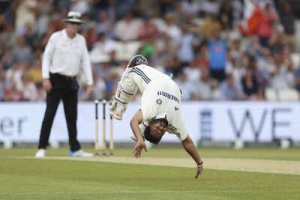Dengue fever, a mosquito-borne viral infection primarily transmitted by the Aedes aegypti mosquito, poses a significant health challenge, especially in tropical regions. India accounts for a substantial portion of the global 100–400 million infections. As the monsoon season approaches, bringing with it the annual peak in infections, there's renewed optimism. India's first dengue vaccine is in its final testing stages, with Phase 3 trial enrollment nearing completion.

Dengue, spread by Aedes mosquitoes, manifests with symptoms like high fever, severe headaches, joint and muscle pain, and a potentially dangerous drop in blood platelet count. In severe instances, the disease can escalate to bleeding, organ failure, and even death. Children and the elderly are particularly vulnerable.
Developing a safe and effective dengue vaccine has been a long-standing challenge for scientists. The complexity lies in the existence of four distinct dengue virus types, requiring a single vaccine to provide protection against all. While some vaccines developed in other countries have shown varied results, their usage remains limited.
The Serum Institute of India (SII) is developing India’s first dengue vaccine, named "TetraVax-DV." It is engineered to defend against all four dengue virus types. Similar to other vaccines, TetraVax-DV employs a weakened form of the virus to stimulate the body's immune system, preparing it to combat dengue. Since it does not contain a live virus, it does not cause the illness.
Vaccines undergo rigorous testing before public approval:
Phase 3 is crucial as it demonstrates the vaccine's ability to prevent dengue within a community.
Phase 3 trials for India’s dengue vaccine commenced in 2023 across more than 20 sites nationwide, encompassing both urban and rural areas. The trials aim to enroll over 10,000 volunteers, including children and adults from diverse backgrounds. Current progress indicates near-completion of enrollment, with promising early results.

India reports a high number of dengue cases globally. Outbreaks strain healthcare facilities and inflict suffering on families. An effective vaccine could:
Irrespective of the vaccine, preventive measures against dengue are crucial, including mosquito protection (lotions, full clothing), drain coverage, and eliminating open water sources that facilitate mosquito breeding.
The Indian Council of Medical Research (ICMR) and Panacea Biotec are key sources for this information.
Newer articles
Older articles
 Greg Chappell: Rishabh Pant is Revolutionizing Cricket with Unorthodox Style
Greg Chappell: Rishabh Pant is Revolutionizing Cricket with Unorthodox Style
 Earth's Mantle Unleashes Volcanic Fury, Carving New Ocean in Africa
Earth's Mantle Unleashes Volcanic Fury, Carving New Ocean in Africa
 Najmul Hossain Resigns as Bangladesh Test Captain After Sri Lanka Defeat
Najmul Hossain Resigns as Bangladesh Test Captain After Sri Lanka Defeat
 Smith Targets Test Return After Baseball Cage Rehab in New York
Smith Targets Test Return After Baseball Cage Rehab in New York
 Is Daily Bowel Movement Necessary? When Irregularity Signals a Health Issue
Is Daily Bowel Movement Necessary? When Irregularity Signals a Health Issue
 Shimron Hetmyer's Last-Gasp Six Stuns MI New York, Seals Record MLC Chase for Seattle Orcas
Shimron Hetmyer's Last-Gasp Six Stuns MI New York, Seals Record MLC Chase for Seattle Orcas
 Rishabh Pant's Somersault Celebration Draws "Unnecessary" Remark From Doctor Who Aided Recovery
Rishabh Pant's Somersault Celebration Draws "Unnecessary" Remark From Doctor Who Aided Recovery
 Oral Cancer: Spotting the Signs, Understanding the Risks, and Why Early Detection is Key
Oral Cancer: Spotting the Signs, Understanding the Risks, and Why Early Detection is Key
 India's First Dengue Vaccine Nears Finish Line: Phase 3 Trials Show Promise
India's First Dengue Vaccine Nears Finish Line: Phase 3 Trials Show Promise
 Asia Cup 2025: ACC Reportedly Targets September Start Amid Rising Hopes, Aims for Schedule Release Next Month
Asia Cup 2025: ACC Reportedly Targets September Start Amid Rising Hopes, Aims for Schedule Release Next Month